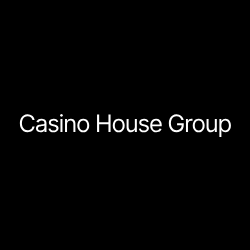Summary
- Evaluation of online gaming platforms.
- Random Number Generators (RNGs)
- Fairness in Games
- Return-to-Player (RTP) calculations
- There is no financial interest or involvement with B2B providers, manufacturers, distributors, or B2C operators.
- "Methodologies and reporting should remain independent."
The Curaçao Gaming Authority (CGA) has initiated a formal procedure for acknowledging independent gaming test laboratories (Testlabs) that seek to offer testing services to operators licensed in Curaçao. A Testlab is defined as an independent, accredited facility that evaluates gambling software and systems—such as random number generators, games, and platforms—to ensure compliance with regulatory technical standards for fairness and security. Testlabs are not permitted to engage in regular business-to-business services or exercise liberal professions like law. To support this initiative, the CGA maintains the public Register of Recognized Testlabs. This register is not an endorsement but rather a confirmation that the entity meets the required regulatory and technical standards set by the authority.
CGA Testlabs’ Recognition
To be recognized, a Testlab must meet two main requirements: First, the Testlab must maintain a valid ISO/IEC 17025 accreditation, which is the international standard for the competence of testing and calibration laboratories. This accreditation should be issued by either a recognized national or international accreditation body that is a signatory to the ILAC Mutual Recognition Arrangement (MRA) or by a similar body such as UKAS. The scope of the accreditation must specifically include all components necessary to validate compliance with CGA-recognized standards. Regarding technical standards, CGA accepts standards from the following regions: United States (New Jersey, Pennsylvania); Canada (Ontario, British Columbia); United Kingdom; and Malta. To achieve CGA recognition, the Testlab must submit to the regulator: (a) a signed declaration of impartiality and (b) corporate documentation. The declaration of impartiality confirms that the Testlab is independent from B2C operators and B2B software suppliers. Therefore, it must adhere to general restrictions: The Testlab must not be involved in the design, development, programming, or manufacture of gaming products; There must be no conflicts of interest, including: Corporate documentation should include the Testlab’s organizational and governance structure, details of an authorized representative, contact information for the main office or branch dealing with the regulator, as well as any other documents CGA may request additionally.
CGA Testlabs’ Certification
After submitting the documents, CGA will issue a certificate of recognition for compliant Testlabs within six to twelve weeks. This certification will facilitate their market operations and enhance recognition from international stakeholders. The certificate is valid for up to two years and is granted to individuals or entities, regardless of whether they are based in Curaçao. Once certified, Testlabs must comply with reporting obligations. This includes notifying the CGA of any significant changes or incidents within three working days of becoming aware. Such changes can include company winding up, changes in shareholding, control, or key management positions. It's important to note that the CGA can withdraw the certification at any time if the Testlab fails to maintain compliance with the required criteria.
4H Opinion
The invitation by the CGA for independent gaming test laboratories to seek recognition marks a significant step in the island's ongoing regulatory reform. This initiative underscores the CGA's commitment to improving the integrity and fairness of its gaming sector. While the move is commendable, it introduces certain challenges. One of the main issues is that the CGA plans to establish its own technical standards, which have not yet been provided. This is happening as interested test labs begin the process of obtaining certification. Currently, the regulator relies on technical standards from other jurisdictions, but this approach is set to change over time. This reliance could create uncertainty, potentially leading to the withdrawal of certificates for test labs and operational difficulties for operators who must navigate international standards while awaiting a cohesive local framework. Additionally, post-enactment of the LOK, the CGA's strategy suggests a phased implementation of regulations, with the expectation of more guidelines and mandates emerging later. Although this gradual approach allows for adaptability, it may require stakeholders to continuously adjust in order to remain compliant.





























